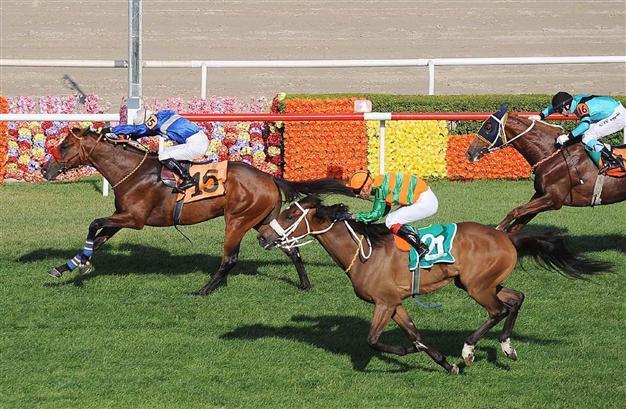Turkey clears deck to privatize horse racing
Ceyhun Kuburlu ISTANBUL
 The announcement of plans to privatize Turkey’s horse races has made the mouths of many foreign and local investors water, though organizers have warned about the potential impact on workers in the sector.
The announcement of plans to privatize Turkey’s horse races has made the mouths of many foreign and local investors water, though organizers have warned about the potential impact on workers in the sector.The government is working on selling off all horse racing enterprises, which attract investors’ attention with the annual income they bring in of around 3.8 billion liras ($1.4 billion), as part of plans to ramp up budget income.
The games have been organized by the Jockey Club of Turkey (TJK) for years, with the Turkish Agriculture Ministry transferring the rights to organize races in Turkey, as well as accepting bets for races in Turkey and abroad, to the institution as they expired.
The chairman of TJK, Yasin Ekinci, said the privatization should be carried out very carefully, warning about the fate of around 100,000 people currently employed in the sector.
“The rights of the sector must be protected,” Ekinci said, giving the negative example of the privatization of horse-racing in Italy.
“Things went bad after privatization in Italy. They cannot pay prize money,” he said, urging the Agriculture Ministry to have a role in post-privatization scheme, in order to ensure the protection of the rights of the sector’s employees.
Ekinci said they had prepared a strategy paper that will outline the future of the sector “regardless of whether the privatization is realized or not.”
He also refused to be aligned with the Privatization Administration, saying it would be wrong because the move is planned as part of government policies.
“The right steps should be taken while this business continues. It should be done according to the strategic plans of the sector, rather than daily plans. Our only aim is to decide on the future of the sector,” he said.
Ekinci also said his institution has agreed with international audit company Ernst&Young for a value assessment to learn how much they are worth, even if the government abandons the privatization.
With 2.781 bookmakers across the country, horse-racing earned nearly 4 billion liras for the TJK in 2014, he also noted, but warned that more investments and horse imports were needed in the sector “as most of the money is spent by the private horse owners.”
















